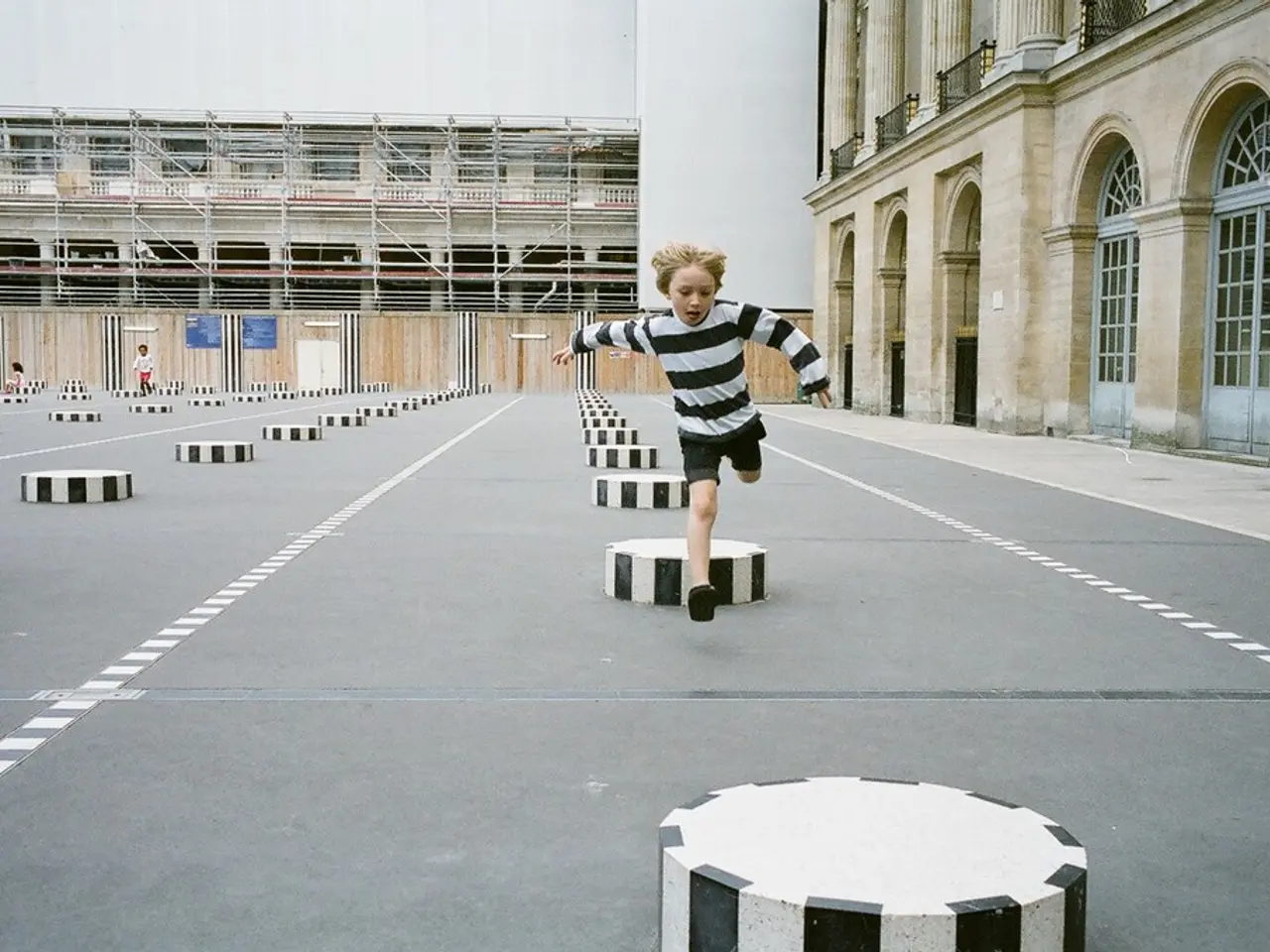Montessori Method In Action: Emphasis on Autonomy, Concentration, and Real-World Materials
In the realm of early childhood education, the Montessori approach stands out as a unique and effective method that fosters a child's natural development and independence. This educational philosophy, developed by Italian physician and educator Maria Montessori, has gained significant attention for its focus on exploration, hands-on learning, and respect for the child's individuality.
A 2006 study conducted by researchers at the University of Virginia found that Montessori students exhibited advanced executive function skills compared to their peers in traditional educational settings. This trend continues to be supported by recent research, such as a 2022 study published in Child Development, which reported significant improvements in school readiness across multiple domains for marginalized girls in rural Nigeria using a Montessori-based early childhood education program.
The key principles of the Montessori approach centre around respecting the child’s natural development and fostering independence, exploration, and hands-on learning. Child-centred learning is at the heart of the method, allowing children freedom to work at their own pace and follow their natural curiosity and interests rather than a fixed curriculum or direct instruction.
In a fast-paced world filled with noise, distraction, and instant gratification, Montessori principles emphasize slowness, simplicity, and intentionality. Parents often comment on their children's calmness in Montessori-inspired spaces, noting concentration, responsibility, and quiet pride.
The prepared environment is another crucial aspect of the Montessori approach. Classrooms and learning spaces are carefully designed to be safe, engaging, and suited to the child’s developmental stages. Materials are sensory-rich, self-correcting, and facilitate active learning through interaction.
Learning is active and experiential in a Montessori classroom. Children engage with materials that require touch, motion, and exploration to develop cognitive and motor skills, in line with Montessori’s belief that “the hands are the instruments of the mind.” Caregivers and teachers observe children carefully and guide only as needed, allowing natural developmental rhythms and sensitive periods to unfold.
Montessori education also encourages social interaction, peer teaching, and collaboration, supporting social and emotional growth alongside academic development. Educators at the museum often witness long periods of focused attention, especially at the Builder’s Bench, where children return to refine their work. Montessori-trained guide Lucia Ferraro observes that children given real tools and meaningful choices can show great concentration, precision, and pride.
Families can bring Montessori principles home by giving their children real materials, inviting them to help with daily routines, and respecting their concentration. The STEM Baby Library, for instance, features soft, open-ended materials arranged by size, color, and texture for infants and toddlers to explore patterns, order, and cause and effect.
Montessori's philosophy isn't just about preparing children for school, but for life, by building resilience, focus, and self-confidence. For those interested in learning more about Montessori, resources include the American Montessori Society, The Montessori Notebook, Montessori and the Brain, and Science Magazine Montessori Education Outcomes.
In the realm of lifestyle and education-and-self-development, the museum dei bambini showcases the principles of Montessori early childhood education, providing a hands-on learning experience for children that encompasses science, respect for individuality, and nurturing social skills. With the STEM Baby Library and other Montessori-inspired resources at home, parents can foster their bambini's cognitive, social, and emotional growth in alignment with Montessori's philosophy, aiming to equip them with focus, resilience, and self-confidence for a successful lifetime.




